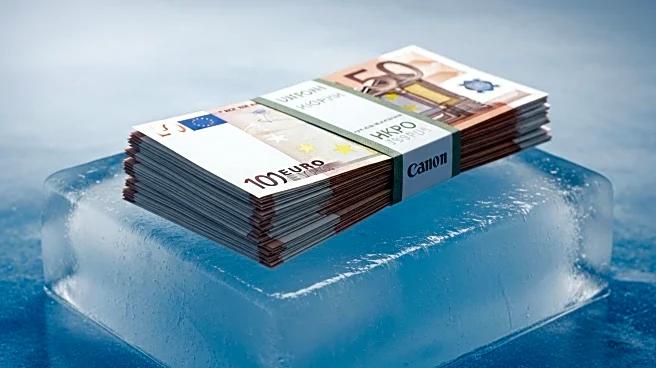What's Happening?
The European Union is contemplating a €140 billion loan to Ukraine, utilizing immobilized assets from the Russian Central Bank. This 'Reparations Loan' aims to support Ukraine's economy and military efforts against Russian aggression. Political support for the plan is growing, with leaders from Finland, Sweden, and Denmark expressing approval. The loan would be disbursed gradually and subject to conditions, with Ukraine repaying only after Russia agrees to compensate for war damages. The initiative represents a bold step since the assets were frozen early in the invasion. Legal questions remain, particularly regarding the potential confiscation of sovereign assets, which is illegal under international law.
Why It's Important?
The proposed loan marks a significant development in international finance and diplomacy, as it challenges traditional norms regarding the handling of frozen assets. If successful, the plan could set a precedent for using immobilized assets to support countries affected by aggression. The initiative underscores the EU's commitment to holding Russia accountable for its actions, potentially influencing global diplomatic relations. However, the legal complexities and potential financial risks involved could pose challenges for the EU, as member states must navigate international law and economic implications. The plan's success could bolster Ukraine's resistance against Russia, impacting the geopolitical balance in Europe.
What's Next?
The EU will continue to refine the legal and logistical aspects of the loan, with the European Commission expected to present detailed legal texts by the end of the year. Member states must reach a consensus on financial safeguards and voting rules to ensure the plan's viability. The proposal may face opposition from countries concerned about economic repercussions and legal challenges. The EU's approach to the loan will be closely watched by international stakeholders, including Russia, which has warned of retaliation. The outcome of these discussions could influence future EU policies on asset management and international support for conflict-affected nations.









